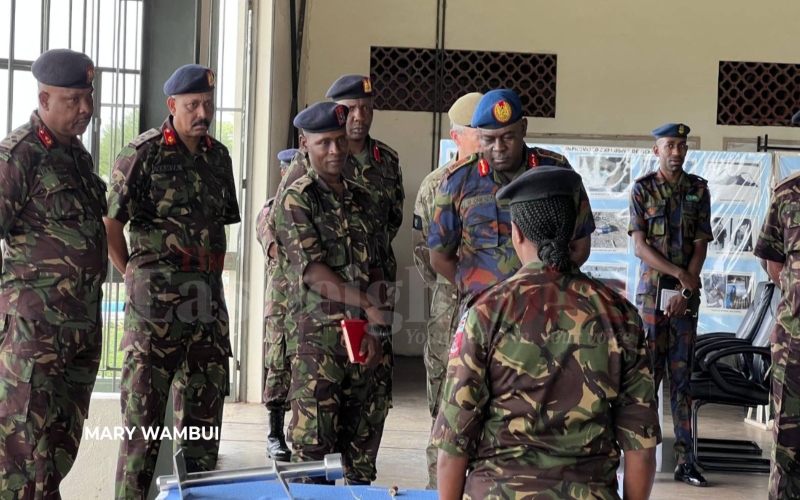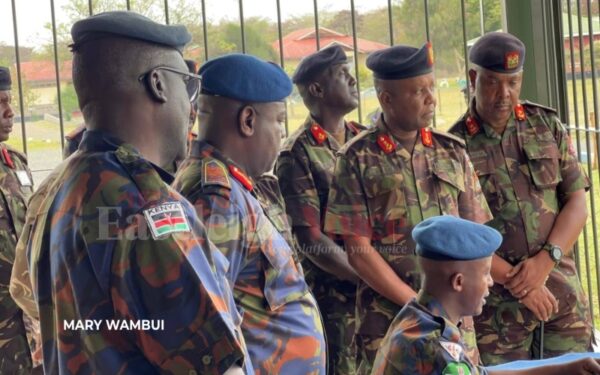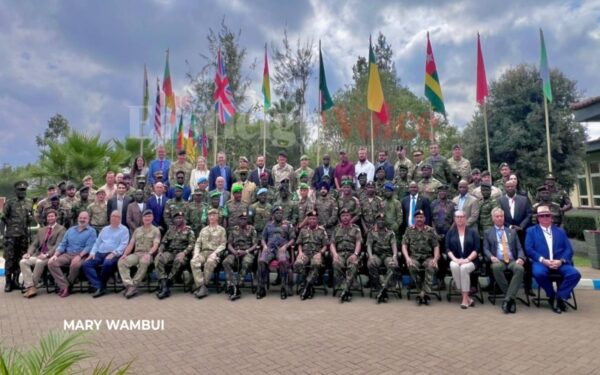Vice Chief of Defence Forces John Omenda calls for continental unity to tackle rising IED threat

According to the United Nations Office of Counter-Terrorism, the use of IEDs by non-state actors in Africa has increased by 12 per cent annually.
The Vice Chief of Defence Forces (VCDF), Lt Gen John Omenda, has called for continental solidarity to combat the growing threat of Improvised Explosive Devices (IEDs) in Africa.
Speaking at the opening of the 7th Africa Annual Counter-Improvised Explosive Device (C-IED) conference, themed ‘A Continental Approach: Creating Situational Awareness of IED Threats Across Africa and Sharing Best Practices to Counter the Threat’, Omenda emphasised that the evolving complexity, lethality, and scale of the threat require collective action.
More To Read
- Landmine casualties rise to 6,279 as treaty withdrawals loom
- Government warns religious extremism shifting to encrypted ‘digital sanctuaries’
- Two police officers killed in Al-Shabaab IED attack in Garissa
- Terrorism in Africa, a ‘growing global threat’
- How ATPU busted prominent lawyer over alleged terror financing linked to ISIS
- African Union calls for respect of Nigeria’s sovereignty amid religious persecution claims
"As highlighted in this year's theme, it is evident that this challenge cannot be addressed in isolation. The fight against IED requires continental solidarity, inter-agency cooperation and international cooperation," he said.
According to the United Nations Office of Counter-Terrorism, the use of IEDs by non-state actors in Africa has increased by 12 per cent annually. These devices remain among the preferred weapons for terrorist groups in the region due to their unconventional nature and devastating impact.
"We all recognise the devastating consequences of IEDs. They indiscriminately target peacekeepers, security forces, humanitarian workers and civilians, eroding trust within communities and undermining peace support operations," said Omenda.
 Vice Chief of Defence Forces Lt Gen John Omenda (second left). He has called for continental solidarity to combat IEDs. (Photo: Mary Wambui)
Vice Chief of Defence Forces Lt Gen John Omenda (second left). He has called for continental solidarity to combat IEDs. (Photo: Mary Wambui)
"Beyond the immediate destruction and tragic loss of life. IEDs perpetuate cycles of insecurity, fear and displacement. They stall development and weaken state structures, making it even harder to build the resilience that societies desperately need."
The conference has attracted over 70 defence representatives from more than 25 countries, along with representatives from the British Peace Support Team-Africa (BPST-A), the African Union, and the United Nations Mine Action Service (UNMAS).
Omenda noted Kenya’s painful experience with IED attacks.
"We have lost soldiers, police officers and innocent civilians to IED attacks. Yet, these sacrifices have only strengthened our resolve to confront this threat head-on. The government of Kenya remains committed to supporting initiatives such as this conference that foster regional and global collaboration, enhance information sharing and strengthen collective response," he said.
On his part, the United Kingdom's Defence Adviser to Kenya, Brigadier Olly Bryan, reiterated the UK's commitment to working with its partners to counter these shared threats and to support efforts that address the root causes of fragility and conflict.
 Delegates attending the 7th annual Counter-IED conference in Nairobi. (Photo: Mary Wambui)
Delegates attending the 7th annual Counter-IED conference in Nairobi. (Photo: Mary Wambui)
"We will continue working closely with the African Union and the United Nations to deliver essential training and operational guidance to help deter the influence of IEDs, Al-Shabaab, and other violent extremist groups," he said.
The BPST-A and Kenya Defence Forces, supported by the International Peace Support Training Centre (IPSTC), have trained over 7,500 military and police personnel from Troop and Police Contributing Countries in detecting and disarming IEDs at the Humanitarian Peace Support School in Embakasi.
"Improvised Explosive Devices remain a critical and evolving threat across Africa, from AUSSOM and the Kenyan borderlands to the wider continent. These Devices are growing in number and complexity, targeting peacekeepers, security forces, aid workers and civilians. The pace and severity of this threat demand coordinated, expert-driven responses," added Bryan.
Top Stories Today












































